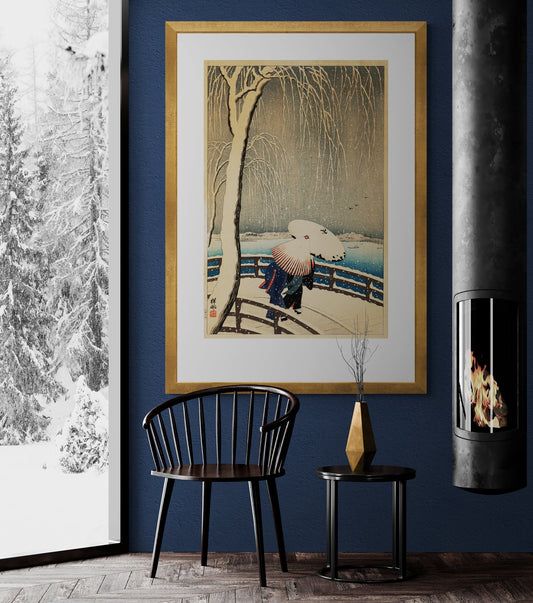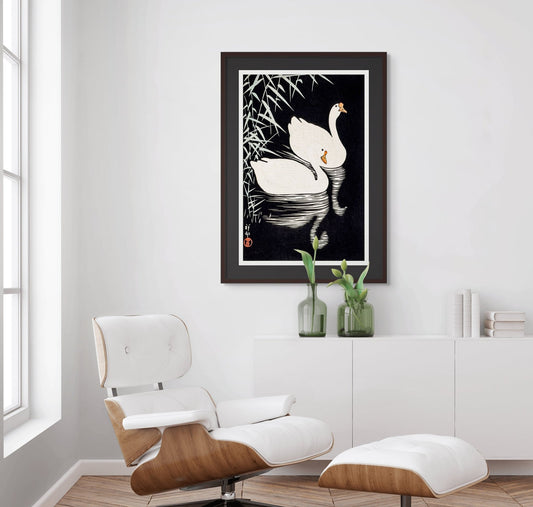Ohara Koson
-

-
"Art is the bridge that connects the human heart to the wonders of the natural world."
Ohara Koson: A Revered Figure in Japanese Woodblock Printing
Early Life and Artistic Beginnings
Born in Kanazawa, Ishikawa Prefecture, Japan in 1877, Ohara Koson was originally named Ohara Matao. He studied painting under Suzuki Kason at the Ishikawa Prefecture Technical School, where he was deeply influenced by the traditions of Japanese art, particularly the Rinpa school. Early in his career, Koson shifted his focus to woodblock printing, a medium that allowed him to merge traditional Japanese aesthetics with the burgeoning style of Shin-hanga, which revitalized classical Japanese art forms through Western influences.
Artistic Contributions and Style
Ohara Koson is best known for his exquisite kacho-e (bird-and-flower) prints, which are celebrated for their delicate and realistic portrayal of nature. He stood out in the Shin-hanga movement for his ability to infuse traditional subjects with a sense of modernity and subtlety. His works are characterized by a vivid attention to detail and a masterful use of color, which bring his subjects to life. Koson’s ability to capture the essence of his subjects, from the plumage of a bird to the petals of a blooming flower, earned him a distinguished place in Japanese art.
Legacy and Influence
Koson's works have had a lasting impact on the appreciation of Japanese woodblock printing around the world. His prints, which gained significant popularity in the West, particularly during the early 20th century, have continued to be celebrated for their beauty and technical proficiency. Today, Koson is recognized as one of the foremost practitioners of the Shin-hanga style, and his prints are highly sought after by collectors and art enthusiasts alike. His legacy is preserved through his contributions to the art of woodblock printing, bridging the gap between traditional Japanese techniques and the aesthetic demands of a global audience.
Pièces supplémentaires par Ohara Koson
-
Parapluies dans la neige (1931)
Prix habituel À partir de $48.00 CADPrix habituel -
Oies chinoises blanches nageant (1928)
Prix habituel À partir de $51.00 CADPrix habituel -
Hirondelles et glycines (1926)
Prix habituel À partir de $48.00 CADPrix habituel -
Petit-duc, cerisiers en fleurs et lune (1926)
Prix habituel À partir de $51.00 CADPrix habituel









